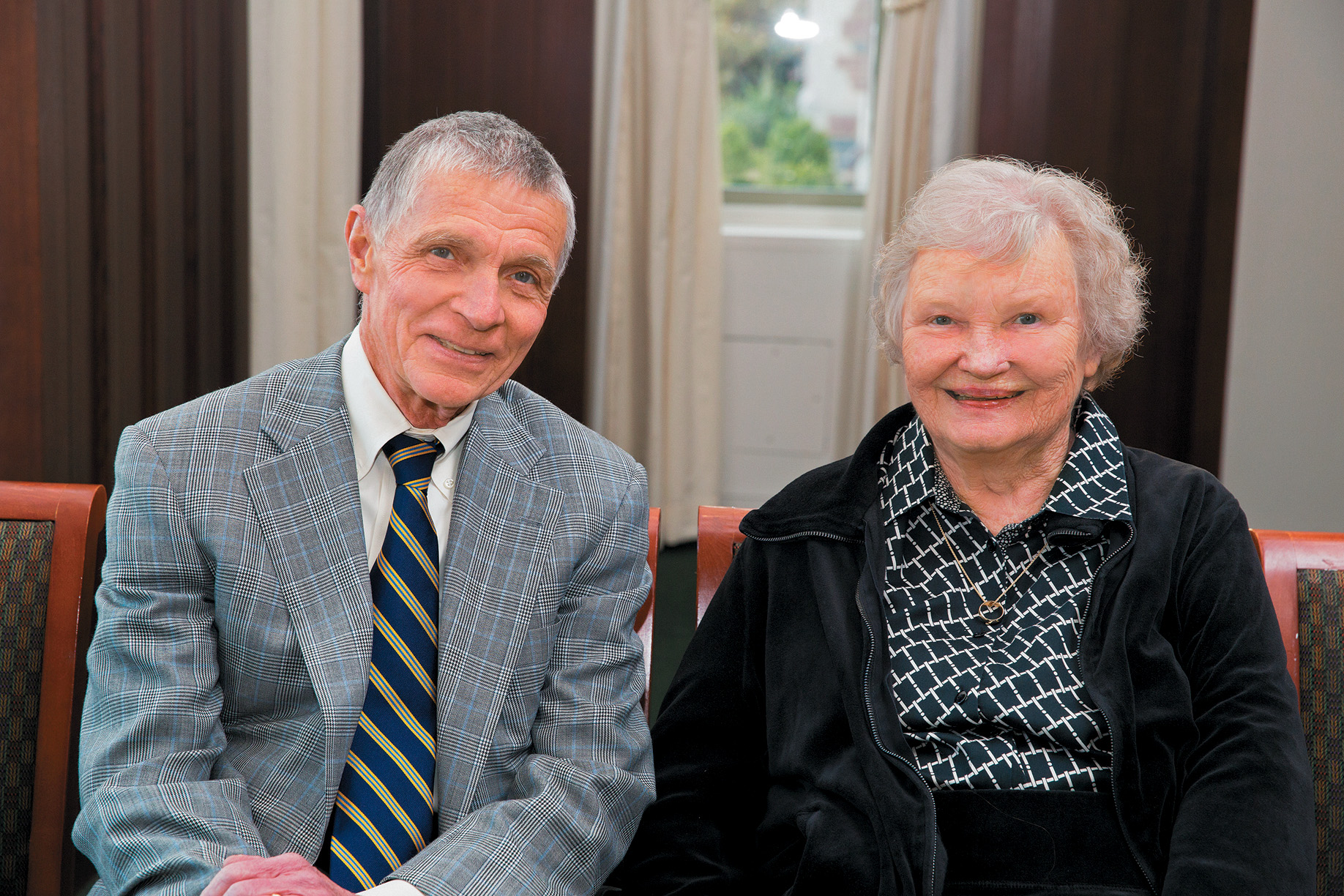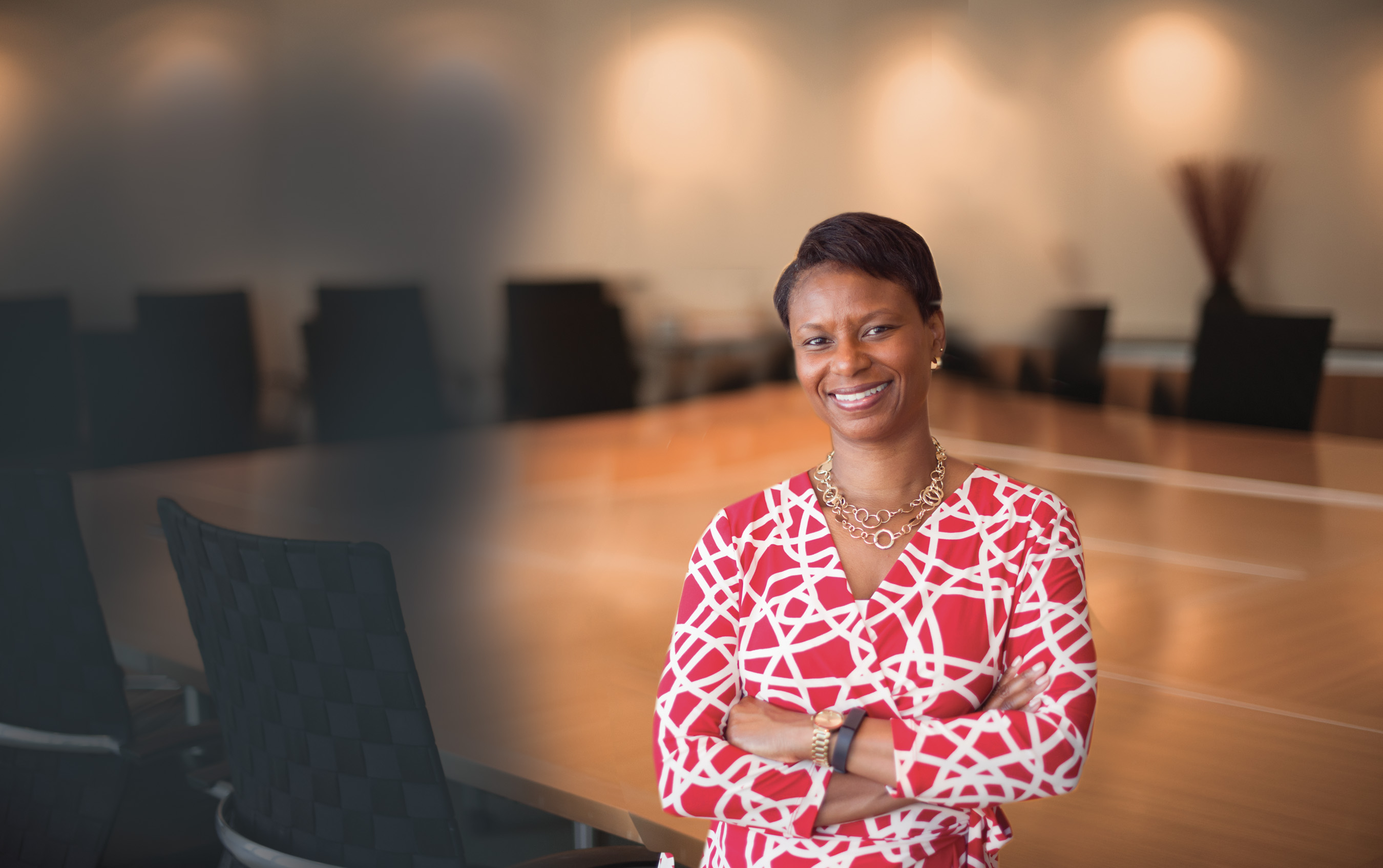
Spotlight | Robert L. Virgil
Bob Virgil, MBA ’60, DBA ’67, has been a leader at Washington University for six decades — beginning as a student and continuing as an alumnus, faculty member, dean of the John M. Olin School of Business, executive vice chancellor, trustee and volun-teer. Students elected him “Teacher of the Year” nine times, and under his leadership as dean, the business school began its transformation into a nationally recognized center of business education. He retired from the university in 1993 and began a second career as a general partner at Edward Jones.
A tireless volunteer on behalf of the university, Virgil led the commission that planned the Sesquicentennial Celebration in 2003–04 and served as president of the William Greenleaf Eliot Society in 2004–07. He joined the Arts & Sciences National Council in 2006, and since 2009 he has chaired the National Council of the Gephardt Institute for Civic and Community Engagement. He chaired Opening the Doors to the Future: The Scholarship Initiative for Washington University. In 2009 the university awarded him an honorary doctor of laws degree. In 2012 he was named scholarships chair for Leading Together: The Campaign for Washington University.
Leading Together has raised more than $300 million in new scholarship support to date. Why did you agree to lead this effort?
I have seen the impact of scholarships firsthand. They made my education possible, first as an undergraduate at Beloit and later as a graduate student at Washington University. As dean of the Olin Business School, I learned how much of each school’s operating budget is needed to provide financial aid. Support for scholarships helps schools meet this urgent need. Most important, scholarships help the university continue to recruit outstanding students. I believe our most compelling financial need today is for new endowed scholarships and annual named scholarships through the Eliot Society.
Why are scholarships such an important priority of the Leading Together campaign?
The steadily growing quality of students at Washington University has greatly contributed to its rise among leading institutions of learning and discovery. However, the high cost of higher education has put top universities out of reach for many students and their families. Scholarships are crucial to help exceptional young people achieve their aspirations — but, unfortunately, Washington University’s endowment for scholarships lags behind many of its peers.
Why should we invest in students at Washington University?
We have the responsibility to keep Washington University open to qualified students of all socioeconomic backgrounds. These young people will become the leaders of tomorrow — if they have the opportunity to realize their extraordinary potential. And that depends on scholarship support.
A talented and diverse student body is the hallmark of a great university. As a former teacher and dean, I find it wonderful to see so many of my students going on to accomplish great things. Many exceptional students are eager to experience a Washington University education, but we lack the resources to admit them all. That has to change — and together, we can make it happen.
What do you enjoy most about volunteering on behalf of the university?
When I travel across the country to visit with alumni on behalf of the scholarship initiative, I always enjoy seeing old friends and former students. For my wife, Gerry, and me, Washington University has been the major force in our lives, after our family. We appreciate the opportunity to return a little for all that Washington University has meant for us.

Spotlight | Kelli P. Washington
Kelli P. Washington, BSBA ’94, is quick to attribute a large part of her success to her undergraduate experience at Washington University — the education she received and the relationships she developed as a student have proven to be invaluable. It began with a full-tuition scholarship to attend Olin Business School, sponsored by Larry Thomas, BSBA ’77. A university trustee and partner with Edward Jones, Thomas served as Washington’s mentor and encouraged her to take a position with his firm after she earned her degree. Washington stayed with Edward Jones for 10 years, and she now works as managing director for Cambridge Associates LLC, in the Washington, D.C., area.
“So much of where I am today, who I’ve become, links back to WashU — my career, my friendships, the wonderful advice I’ve been given along the way. I’ve always had this desire to give back to the university because of that,” Washington says.
How did you start volunteering for Washington University?
Bob Virgil, former dean of the Olin Business School, asked me to serve on the Olin Alumni Council. Bob served as dean during my first two years of college, and I came to know him personally because of his work with underrepresented minority students. I was happy to take his suggestion, and I served on the council for six or seven years while I lived in St. Louis. I was also active with the Black Alumni Council during that time. In those early years when I had just started my career, volunteering my time and energy was an effective way for me to give back.
Describe your work as a Reunion volunteer.
I served as executive co-chair for my 5th, 10th and 20th Reunions, along with a classmate, Greg Walker, AB ’94. We served together for all three Reunions, which was fun. I saw it as an opportunity to be involved with WashU in a new way, while encouraging a diverse group of classmates to come back to campus and reconnect. It was a win-win for me.
One of the things I love about WashU is that the staff makes it so easy to volunteer. I know firsthand how hard the staff works to make things easy for the volunteers because one of my work-study jobs as a student was in the alumni office.
What advice would you give to alumni who want to stay connected with the university?
I would urge them to make sure the alumni office knows where they are living and has their current email address. Updating your contact information is key. I know a young alumna who lives here in the D.C. area, and she was not aware of local alumni events because her contact information was out of date. I encouraged her to come to a happy hour, and she ended up running into a few of her classmates and had a great time.
As a member of the alumni community, I belong to an amazing network of people. When I relocated to D.C. from Boston, one of the things I was most excited about was the chance to be active with a larger WashU network. When I arrived in D.C., I posted something about my move on Facebook. Jodi Sweed, AB ’94, lives in the area, and when she saw my post, she quickly responded with “That’s great! There’s a WashU function next week — you have to come!” So within a week of moving to a new city, I was attending a WashU event, and I immediately felt like I was home.
I would tell all alumni to stay connected with friends and classmates. Attend your Reunion if you can. Find your local alumni, and then help plan an activity — whether it’s a lunch, a hike or an art exhibit — and get involved!